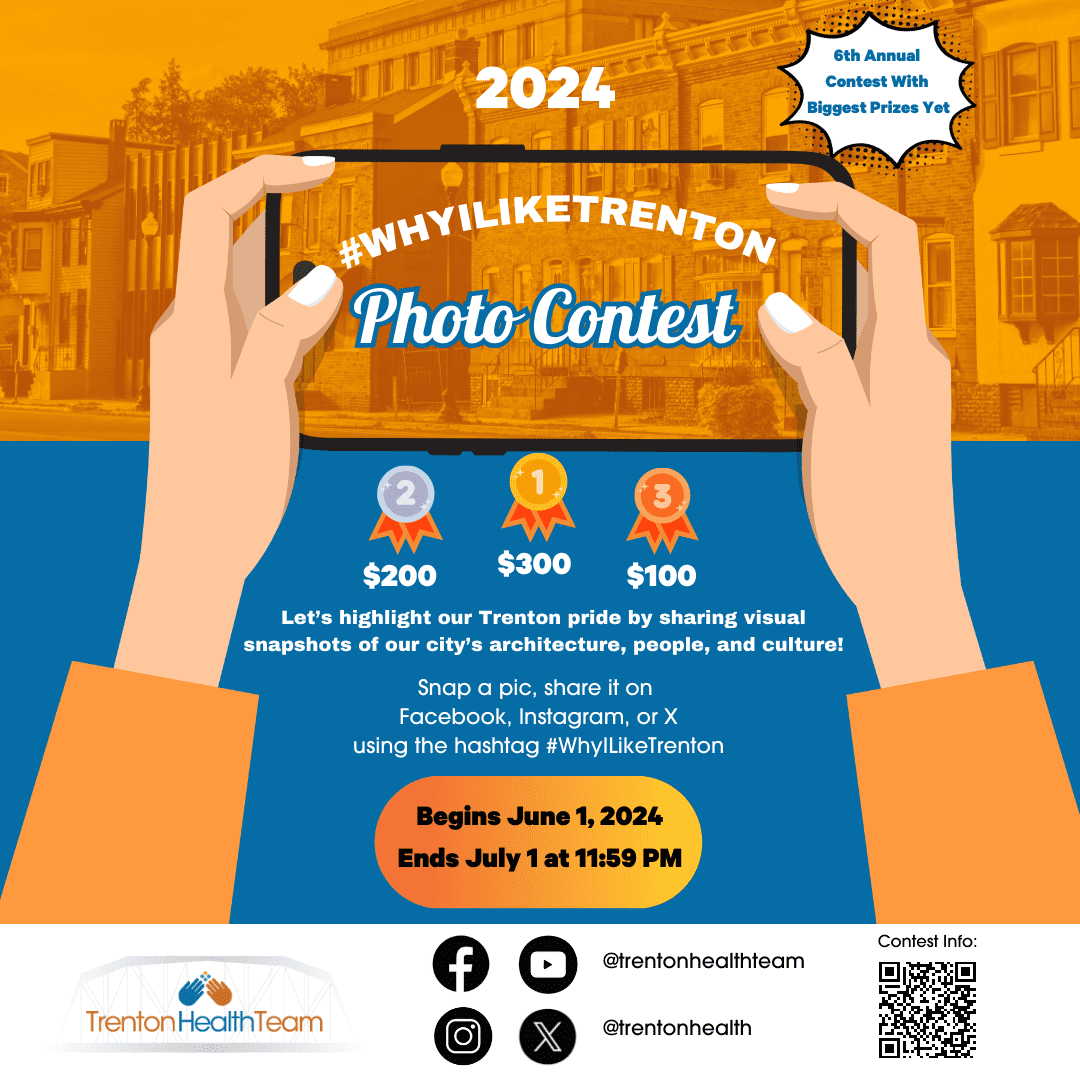NJ’s Inner Cities Ready, but Waiting, to Formalize Medicaid ACOs
Inner city hospitals and physicians are waiting for federal regulations that will enable them to launch Medicaid ACOs designed to cut costs while improving care primarily through reduced ER visits. Although the final regulations are still several months out, urban health providers have hardly been sitting on their hands: In fact, they’ve been working for years to create coalitions committed to improving healthcare for the poor.
Last year, New Jersey enacted legislation calling for ACOs to be created in Camden, Trenton, Newark, and other cities, and to formalize their alliances as government-sanctioned Medicaid Accountable Care Organizations. The ACOs would receive a portion of the money Medicaid saves by reducing unnecessary ER and hospital use for reinvestment into improving public health services in their communities.
However, since the Medicaid program is financed 50/50, they still need the federal government’s approval.
Meanwhile, the state Department of Human Services is writing regulations that it expects to issue in late summer or early fall, a spokesperson said. Once federal approval is secured and the regulations are in place, New Jersey will begin to accept Medicaid ACO applications from urban healthcare pioneers.
The best known among them is Dr. Jeffrey Brenner, who has a national reputation for his leadership of the Camden Coalition of Healthcare Providers. The group has zeroed in on helping Camden’s so-called “frequent fliers” — very sick and mostly poor people who overuse the city’s hospitals, costing the system millions of dollars without producing better public health.
Both Brenner’s Camden coalition, and the Trenton healthcare coalition, known as the Trenton Health Team, plan to seek Medicaid ACOs status when the program launches later this year. In Newark, efforts to improve care to the city’s low income residents is being led by the Greater Newark Health Care Coalition, headed by Dr. John Brennan, CEO of Newark Beth Israel Medical Center.
“We are very interested in establishing either an ACO, or an ACO-like structure, for the provision of Medicaid services in Newark,” said Barry Ostrowsky, CEO of Barnabas Health, parent of Newark Beth Israel.
“The ACO is designed to provide greater efficiency in the provision of care,” Ostrowsky said. “Its intent is to create an organization that takes out the seams between the physicians and the institutions and outpatient care — so it’s really something that conceptually makes a great deal of sense.”
State Sen. Joseph F. Vitale (D-Middlesex), who sponsored the Medicaid ACO legislation, said “It’s important that we move the process along. Medicaid ACOs are going to save the state and the federal government millions of dollars a year but also at the same time provide for care in an appropriate setting.” He said in Camden, Brenner has been able to identify patients “who regularly use the ER as their primary care provider, costing the system millions of dollars. Now he is able to work with those individuals to bring them into more of a managed care setting where they are getting appropriate care at a cost that is far less than it is today. And they are getting the right kind of care: they are getting preventive care.”
Dr. Ruth Perry, executive director of the Trenton Health Team, also plans to apply to become a Medicaid ACO. “We are working now to lay the foundation,” she said. This includes working with patients who are high utilizers of the hospital ERs “to provide wraparound service for them, whether that’s medical, behavioral issues, housing or some combination thereof to improve the quality of their lives and get better health outcomes and potentially to reduce costs.”
Perry has seen some success in the initial efforts, citing a patient identified as “Lady B,” who in 2010 had 465 visits to the ER, at a cost well over $1 million. She was homeless had other medical and behavior issues, Perry said. The team at St. Francis Hospital, which includes a physician, advanced practice nurse, nurse case manager and a social worker, began working with Lady B in conjunction with other partners, including the Mercer County Alliance to End Homelessness, and Greater Trenton Behavioral Health. In 2011, Lady B had only 12 ER visits, Perry said. “We think that is positive.”
The Trenton Health Team has completely revamped scheduling at its seven outpatient clinics, so instead of waiting weeks or months for an appointment, patients can get into the clinic in one or two days, they don’t have a long wait once they arrive, and they generally see the same doctor each time, Perry said.
The demographics in Trenton are challenging, Perry said. “We have a large number of homeless individuals — last year 296 homeless people generated 1,560 ER visits.” The city has high rates of poverty and unemployment and ER use is about 54 percent over the national average. “We feel that the work we are doing will improve the health of our community, of which a large number are uninsured and underinsured.”
Essentially, the ACO makes it possible for doctors to work in concert to coordinate care — following up on treatments and medication, for example, or making sure that a patient visits a specialist. The goal is to avoid unnecessary care, such as expensive emergency room visits, and to improve outcomes, both of which help reduce healthcare costs.
The New Jersey Health Care Quality Institute has been working with the state to help implement the Medicaid ACO program, and expects a number of local coalitions to create ACOs around the state, according to Allison DeBlois, chief of staff.
“An ACO is a care coordination model where providers come together,” DeBlois said. “They used to compete for the same patients, and are now working together” to improve care to these patients.
In New Jersey, much of the emphasis will be on reining in excessive ER use, she said. When the state health department rules come out, “I’m hoping the regs will allow the cities to build their model (for an ACO) in the way they need to. Camden will look very different from Trenton and very different than Newark or Atlantic City.” Medicaid ACOs were authorized by the 2010 federal Affordable Care Act. “This is one of the great promises of health reform,” said David Knowlton, president of the New Jersey Health Care Quality Institute. The goal of a Medicaid ACO is not only to reduce health care costs, “but also to make care accountable for the neediest citizens we have.”
Dr. Louis Bezich, chief of staff at Cooper University Hospital, a member of the Camden Coalition, said he is optimistic that ACOs can reduce healthcare costs and also develop new clinical practices. “But it is going to be difficult because it really is a major change in the way that healthcare has traditionally been delivered,” he said. “Overall, we think accountable care is inevitable regardless of the outcome of federal healthcare reform” because of economic forces at work that will require attacking the high cost of care.
The state’s Medicaid ACO law calls on the Rutgers Center for State Health Policy to assist the state in developing a process to evaluate the gain sharing plans that will be created by the ACO applications, and to help the state create a process to determine who will quality as an ACO, according to Joel Cantor, center director. The center will also do an annual evaluation of each ACO.
“This is very complicated,” Cantor said. “It is conceptually simple: Providers save money and share in the savings, and in the process improve care. But how do you measure improvement? What activities are allowable and required? What is the approval process? How do the dollars flow? There are a lot of moving parts.”
Brenner said the Camden coalition has evolved from its start nine years ago, when it made national headlines by identifying and working with patients who were constantly moving in and out of hospitals.
The coalition has received several million dollars in foundation grants allowing the team to “hire nurses that we’re now imbedding into primary care offices,” to find ways to coordinate the medical care for the patients of the practices. The goal is “to do a better job of catching sick people as they leave the hospitals,” Brenner said. Several years ago the coalition computerized and interconnected patient records at the hospitals, and every day the coalition gets a list of the people who have been admitted to the hospital or gone to the emergency room in the last 24 hours. The electronic records allow the team to see how many times these individuals have been to the hospital in the past year.
“We prioritize from that list who we are going to go up and meet each day.” A nurse meets with the patient before the patient leaves the hospital. “Within 24 hours we see them at home, and within 7 days they make a primary care appointment and we go with them to the appointment, and help the provider coordinate the care,” Brenner said.
“Historically the work we have done has been with the most extreme patients,” he said. “Now we are working our way down to the next tier of patients and figure out what is the full comprehensive model going to look like.”
About the Trenton Health Team
Trenton Health Team (THT) is an alliance of the city’s major providers of healthcare services including Capital Health, St. Francis Medical Center, Henry J. Austin Health Center and the city’s Health Department. In collaboration with residents and the city’s active social services network, THT is developing an integrated healthcare delivery system to transform the city’s fragmented primary care system and restore health to the city. THT aims to make Trenton the healthiest city in the state. Support for the Trenton Health Team was provided in part by a grant from The Nicholson Foundation. For more information, visit www.trentonhealthteam.org.










